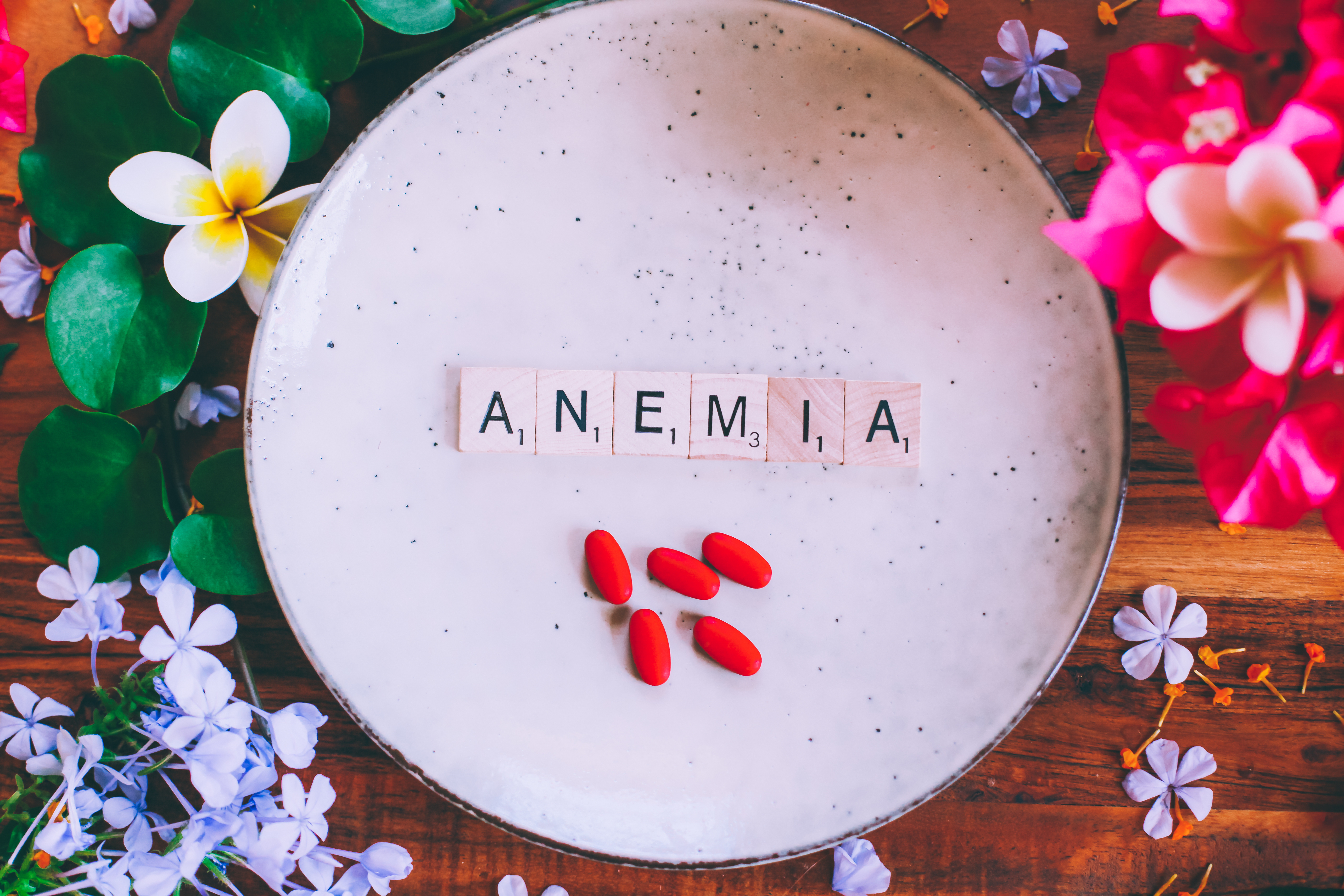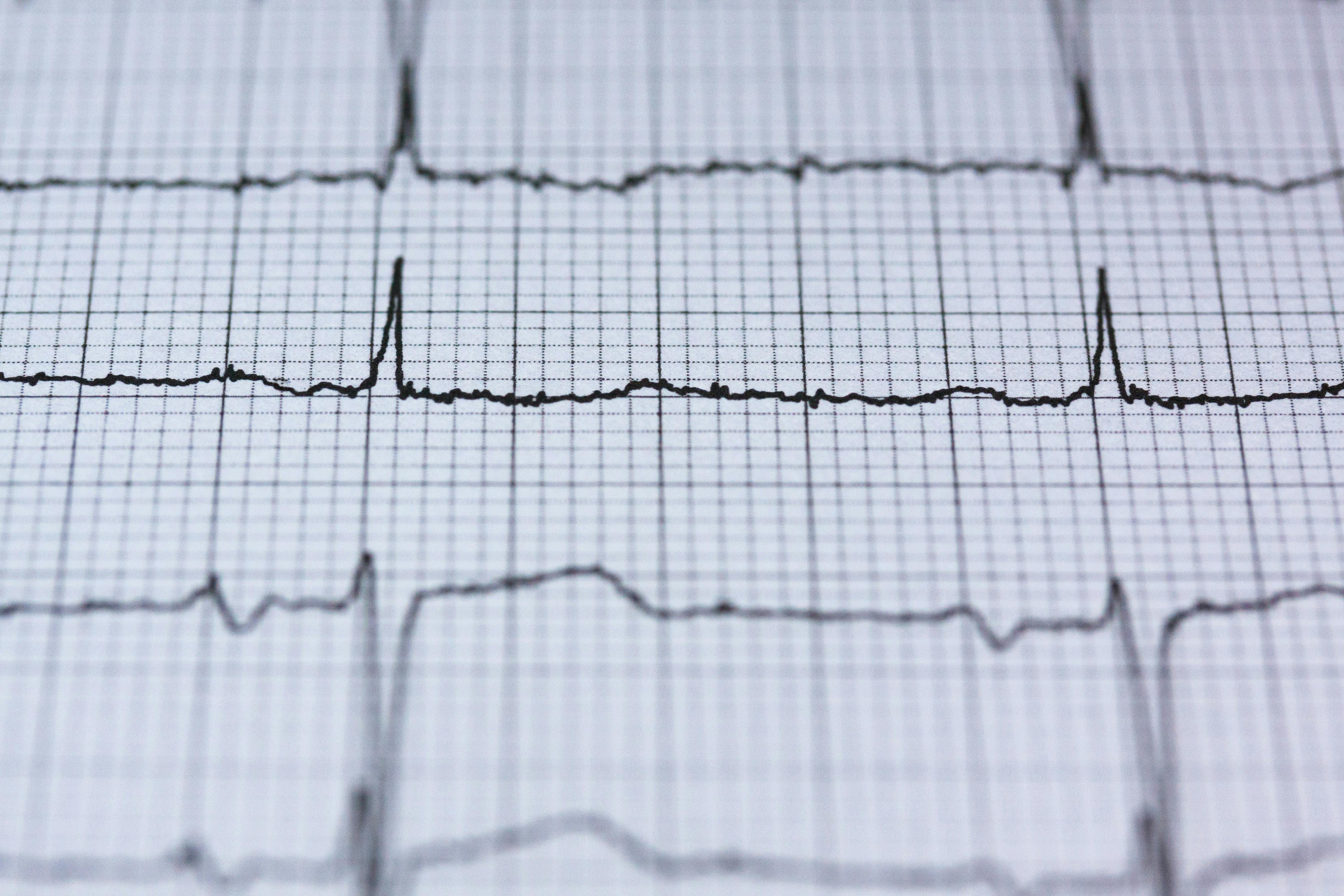Gut Health Alarms: Subtle Signs Your Digestion Is in Trouble
The human gut is a complex and dynamic system that plays a critical role in overall health. Often referred to as the "second brain," the gut communicates with the rest of the body through various signals. When something is amiss, these signals can manifest in surprising ways that are easy to overlook. Recognizing these signs is crucial as they can indicate underlying issues that require attention. That's why we've expanded our list of unexpected signs that your gut might be in distress, offering insights into how these symptoms arise and what they might mean for your health. By understanding these signals, you can take proactive steps to maintain a healthy gut and, by extension, a healthy body.
1. Persistent Fatigue: The Energy Drain

One of the more surprising signs of gut distress is persistent fatigue. While tiredness can result from numerous factors, when it becomes chronic, it often points to underlying health issues, including those related to gut health. The gut is responsible for the absorption of nutrients that provide the body with energy. When the gut is compromised, nutrient absorption can be impaired, leading to deficiencies that manifest as fatigue. Additionally, an imbalanced gut microbiome can produce toxins that enter the bloodstream, causing inflammation and fatigue. Recognizing fatigue as a potential gut issue can lead to dietary adjustments and lifestyle changes that restore energy levels and overall vitality.
2. Skin Issues: The Gut-Skin Connection

Skin problems such as acne, eczema, and rosacea can be distressing and persistent, often resisting topical treatments. Surprisingly, these issues can be linked to gut health. The gut-skin axis is a bidirectional communication pathway where gut health influences skin condition. An imbalanced gut microbiome can lead to systemic inflammation, which may manifest as skin flare-ups. Furthermore, certain gut bacteria can produce metabolites that affect skin health. Addressing gut health through diet and probiotics can often lead to improvements in skin conditions, highlighting the importance of looking beyond surface-level treatments.
3. Mood Swings: The Emotional Rollercoaster

Mood swings and emotional instability are often attributed to psychological factors, but they can also be a sign of gut distress. The gut produces about 90% of the body's serotonin, a neurotransmitter that regulates mood. An unhealthy gut can disrupt serotonin production, leading to mood disorders such as anxiety and depression. Moreover, the gut-brain axis, a communication network between the gut and the brain, means that gut inflammation can directly impact mental health. Understanding this connection can help in managing mood swings through dietary changes and stress-reduction techniques that promote gut health.
4. Frequent Illness: The Immune System Alarm

A compromised gut can weaken the immune system, leading to frequent colds and infections. The gut houses a significant portion of the immune system, with gut-associated lymphoid tissue (GALT) playing a crucial role in immune responses. When the gut is imbalanced, its ability to fend off pathogens is reduced, making the body more susceptible to illness. Additionally, a leaky gut, where the gut lining becomes permeable, can allow toxins to enter the bloodstream, further taxing the immune system. Strengthening gut health through a balanced diet and probiotics can enhance immune function and reduce the frequency of illnesses.
5. Unexplained Weight Changes: The Metabolic Mystery

Sudden weight gain or loss can be perplexing, especially when lifestyle factors remain constant. These changes can often be traced back to gut health. An imbalanced gut microbiome can affect metabolism and the way the body stores fat. Certain bacteria can extract more calories from food, leading to weight gain, while others might disrupt the body's ability to regulate blood sugar, leading to weight loss. Moreover, gut inflammation can alter hunger hormones, affecting appetite and weight. Identifying and addressing gut imbalances can help stabilize weight and improve metabolic health.
6. Food Intolerances: The Digestive Dilemma

Developing intolerances to certain foods can be both frustrating and puzzling. These intolerances often signal gut distress. A healthy gut contains a diverse microbiome that aids in the digestion of various foods. When this balance is disrupted, the gut may struggle to process certain foods, leading to symptoms such as bloating, gas, and diarrhea. Additionally, a leaky gut can allow food particles to enter the bloodstream, triggering an immune response. Identifying food intolerances and working to heal the gut through dietary adjustments and supplements can alleviate symptoms and restore digestive harmony.
7. Bad Breath: The Unexpected Indicator

Bad breath, or halitosis, is commonly associated with poor oral hygiene, but it can also be a sign of gut issues. The gut microbiome can influence the types of bacteria present in the mouth. An imbalance in gut bacteria can lead to an overgrowth of harmful bacteria in the mouth, resulting in bad breath. Furthermore, digestive issues such as acid reflux can cause stomach contents to enter the esophagus and mouth, contributing to halitosis. Addressing gut health through probiotics and dietary changes can often improve breath odor and overall oral health.
8. Sugar Cravings: The Gut's Sweet Tooth

Intense sugar cravings can be more than just a lack of willpower; they can indicate a gut imbalance. Certain gut bacteria thrive on sugar and can influence cravings by signaling the brain to consume more sugar. This can create a cycle of sugar consumption that further disrupts the gut microbiome. Additionally, sugar can feed harmful bacteria and yeast, leading to overgrowth and gut inflammation. Recognizing sugar cravings as a potential gut issue can lead to dietary changes that reduce sugar intake and promote a healthier gut environment.
9. Joint Pain: The Inflammatory Connection

Joint pain is often associated with aging or physical activity, but it can also be a sign of gut distress. An unhealthy gut can lead to systemic inflammation, which can manifest as joint pain and stiffness. This is particularly true in conditions such as arthritis, where inflammation plays a key role. Additionally, a leaky gut can allow inflammatory compounds to enter the bloodstream and settle in joints, exacerbating pain. Addressing gut health through anti-inflammatory diets and probiotics can often alleviate joint pain and improve mobility.
10. Sleep Disturbances: The Restless Nights

Sleep disturbances, including insomnia and restless sleep, can be linked to gut health. The gut produces neurotransmitters such as serotonin and melatonin, which regulate sleep. An unhealthy gut can disrupt the production of these chemicals, leading to sleep issues. Additionally, gut inflammation and discomfort can directly impact sleep quality. Recognizing the connection between gut health and sleep can lead to lifestyle changes that promote better sleep hygiene and dietary adjustments that support neurotransmitter production.
11. Headaches: The Gut-Brain Link

Frequent headaches and migraines can be debilitating and are often linked to various triggers. Surprisingly, gut health can be one of these triggers. The gut-brain axis means that inflammation in the gut can affect the brain, leading to headaches. Additionally, certain gut bacteria can produce compounds that trigger migraines. Recognizing headaches as a potential sign of gut distress can lead to dietary changes and stress-reduction techniques that promote gut health and reduce headache frequency.
12. Bloating and Gas: The Digestive Discomfort

Bloating and gas are common digestive complaints that can indicate gut distress. These symptoms often arise from an imbalance in gut bacteria that leads to excessive fermentation of food in the intestines. Additionally, a leaky gut can cause inflammation and digestive discomfort. Identifying the underlying causes of bloating and gas can lead to dietary changes, such as reducing FODMAPs or increasing fiber intake, that promote a healthier gut environment and alleviate symptoms.
13. Brain Fog: The Cognitive Cloud

Brain fog, characterized by forgetfulness, lack of focus, and mental fatigue, can be linked to gut health. The gut-brain axis means that gut inflammation can directly impact cognitive function. Additionally, an imbalanced gut microbiome can produce toxins that affect brain health. Recognizing brain fog as a potential sign of gut distress can lead to dietary changes and lifestyle adjustments that promote gut health and enhance cognitive clarity.
14. Autoimmune Conditions: The Gut-Immune System Interaction

Autoimmune conditions, where the immune system attacks the body's own tissues, can be linked to gut health. A leaky gut can allow antigens to enter the bloodstream, triggering an immune response that can lead to autoimmune conditions. Additionally, an imbalanced gut microbiome can affect the regulation of the immune system. Recognizing autoimmune conditions as a potential sign of gut distress can lead to dietary changes and lifestyle adjustments that promote gut health and reduce autoimmune symptoms.
15. The Cravings Puzzle: Beyond Just Sugar

Your gut may be influencing what you crave in more ways than just a sweet tooth. An unbalanced gut microbiome, where harmful bacteria or fungi like candida outnumber beneficial microbes, can cause intense cravings for specific foods. These microbes produce chemicals that mimic human neurotransmitters, directly influencing your brain to demand the very foods they need to thrive—often processed carbs, fatty foods, or alcohol. These aren't emotional cravings; they're biochemical signals. When you're constantly battling urges for pizza or bread, it could be a sign that your gut’s tiny tenants are sending a powerful S.O.S. to your brain for their preferred fuel.
16. Unexplained Anemia: A Hidden Deficiency

If you're dealing with unexplained iron deficiency or anemia despite a diet rich in iron, your gut might be to blame. The small intestine is where most nutrient absorption occurs, and a compromised gut lining, often caused by inflammation from issues like celiac disease or small intestinal bacterial overgrowth (SIBO), can prevent your body from properly absorbing vital minerals. This means even if you're consuming plenty of iron, B12, or other key nutrients, they're not making it into your bloodstream. This kind of anemia is often a silent but serious signal that your gut's ability to perform its most fundamental job is failing.
17. Edema or Swelling: The Gut's Inflammatory Overflow

When you experience unexplained swelling or fluid retention, particularly in your legs, hands, or feet, it could be a sign of systemic inflammation originating in the gut. A permeable or "leaky" gut allows undigested food particles, toxins, and bacteria to enter the bloodstream. This triggers a widespread immune response and inflammation throughout the body. The lymphatic system, which is responsible for clearing fluids, can become overwhelmed, leading to visible swelling. This swelling, known as edema, is not just a cosmetic issue; it's a physical symptom of your immune system being in a constant state of high alert due to a compromised gut barrier.
18. Cold Hands and Feet: The Gut's Circulation Signal

If you often have cold hands and feet, it might not be poor circulation—it could be a gut issue. The gut plays a critical role in regulating body temperature and metabolism. When your gut is inflamed, it can shift blood flow to the core to support digestion and immune response, diverting it away from your extremities. This can lead to chronically cold hands and feet, even in warm environments. This seemingly minor symptom can be a subtle indicator that your body is prioritizing its internal battle over peripheral circulation, providing a simple yet powerful clue about what’s happening beneath the surface.
19. Chronic Sinus Issues: A Gut-Respiratory Link

Your stuffy nose or chronic post-nasal drip might not be an allergy; it could be a signal from your gut. A strong gut-respiratory axis connects your gut health to your sinus and lung health. An imbalanced microbiome can lead to inflammation that travels through the body, affecting the delicate tissues of the sinuses. This can result in persistent congestion, facial pressure, and recurrent sinus infections that don’t respond to typical allergy or cold treatments. When your sinuses are constantly inflamed without a clear reason, it's worth exploring the possibility that the root of the problem is not in your nose, but in your gut.
20. Brittle Nails and Dry Hair: The Absorption Barrier

A surprising, visible sign of chronic gut inflammation is the deterioration of hair and nails. These structures require constant supplies of specific nutrients—namely biotin, zinc, iron, and protein—for strength and growth. When the gut lining is compromised, its ability to fully absorb these vital minerals and vitamins is diminished. Even if your diet is perfect, the nutrients are not making it into your bloodstream. Brittle nails that peel easily or hair that suddenly becomes dry and thin can be a chronic signal that the gut's absorption machinery is failing, long before a full-blown deficiency disease appears.
21. Chronic Bad Posture: The Abdominal Guarding

Chronic, unexplained bad posture can sometimes originate in the gut. Persistent inflammation, gas, or pain (like that from IBS or SIBO) in the abdomen can trigger a reflexive, subconscious "guarding" response where the body slightly slouches or hunches forward to protect the irritated gut. Over time, this repeated tension can weaken the core and affect spinal alignment, leading to chronic back and neck pain. If stretching or exercise doesn't correct your posture, the root cause might be an internal trigger. This is the body's protective mechanism subtly affecting your musculoskeletal system.
22. Hormonal Acne (Around the Chin/Jawline)

While you mention skin issues, a specific pattern of cystic acne around the chin and jawline can be strongly tied to gut-related hormonal imbalance. The gut plays a critical role in metabolizing and excreting excess hormones, especially estrogen. If the gut microbiome is compromised, it can fail to properly eliminate these hormones, leading to their reabsorption into the bloodstream. This buildup disrupts the delicate balance of hormones, which often manifests as persistent, hard-to-clear cystic acne in the lower face. Addressing the underlying microbial imbalance can often clear up this stubborn, diet-sensitive skin condition.
23. Restless Legs Syndrome (RLS) or Night Twitches

Restless Legs Syndrome (RLS)—the irresistible urge to move the legs, often occurring in the evening—is commonly linked to iron and dopamine deficiencies. A struggling gut can be the cause of these deficiencies. Gut inflammation impairs the absorption of vital iron and B vitamins, disrupting the synthesis of dopamine, a neurotransmitter critical for movement control and sleep. If you experience RLS, night twitches, or a nagging urge to move your limbs, it could be a sign that your gut isn't providing the building blocks necessary for proper neurotransmitter and mineral balance.
24. Excessive Gassiness Without Bloating (Fermentation Warning)

Gassiness without the immediate, visible discomfort of severe bloating can be a sneaky sign that the wrong kind of fermentation is happening. This indicates that a high volume of food—particularly carbohydrates—is being broken down by bacteria too high up in the digestive tract, possibly due to Small Intestinal Bacterial Overgrowth (SIBO). While bloating is common, flatulence alone (especially after meals) can signal misplaced or imbalanced bacteria. This is a subtle, odorless metabolic alarm that the delicate balance between the small and large intestine may be compromised, leading to inefficient digestion.
25. Heart Palpitations or Irregular Heartbeat

Experiencing occasional heart palpitations or an irregular heartbeat (unrelated to heavy exertion) can be a surprising message from your gut. This is often linked to the gut's influence on mineral balance. Gut inflammation and poor absorption can lead to deficiencies in critical electrolytes like magnesium and potassium. These minerals are essential for regulating the heart's electrical rhythm. When the gut fails to absorb them efficiently, the heart becomes electrically unstable, leading to that fluttering or racing sensation. Persistent palpitations should always be medically checked, but often point to a nutritional imbalance originating in the digestive tract.
26. Easy Onset of Exercise-Induced Nausea

For active individuals, experiencing nausea or stomach distress that begins early in an exercise session can be a gut signal. When you exercise, blood flow is diverted from the digestive organs to your working muscles. If the gut lining is already compromised or inflamed, this temporary reduction in blood flow can cause immediate distress, leading to queasiness or vomiting. This differs from simple digestive issues after a meal; it's a reaction to the physiological stress of exercise. This sign suggests your gut wall needs healing to handle the body's natural shifts in blood flow.
27. Perioral Dermatitis or Rash Around the Mouth

Beyond general skin issues, a specific rash like perioral dermatitis (a persistent redness and bumps around the mouth and nose) is frequently linked to underlying gut dysbiosis. This inflammatory skin condition often resists topical treatments because its root cause lies internally. An imbalance of flora or a specific overgrowth (like Candida) in the gut can create systemic inflammation that manifests uniquely in the sensitive skin around the mouth. Recognizing this localized rash as a systemic immune flare allows treatment to be focused on restoring microbial balance.
28. Xanthelasma (Yellowish Spots on Eyelids)

The presence of xanthelasma—small, yellowish cholesterol deposits that form near the inner corner of the eyelids—can be a physical sign of compromised gut-metabolic function. While these are directly related to high blood lipids (cholesterol), the gut microbiome plays a crucial role in the body’s ability to process, metabolize, and excrete dietary fats and cholesterol. These visible deposits suggest your entire lipid regulatory system is under stress, often due to a lack of beneficial bacteria to help process cholesterol effectively.
29. Chronic Thirst and Dehydration (Mineral Imbalance)

If you are constantly thirsty, even after drinking water, it may indicate a problem with the gut's ability to absorb or maintain proper electrolyte balance. Gut inflammation can interfere with the absorption of key minerals like sodium and potassium. These minerals are vital for regulating fluid retention and signaling thirst. If they are poorly absorbed, the body struggles to hold onto the water you drink, leading to chronic dehydration, constant thirst, and a cycle of trying to hydrate without success. This subtle sign points to an absorption deficit affecting the entire system.
Listening to Your Gut

Understanding and recognizing the signs of gut distress is crucial for maintaining overall health. These signals, while surprising, offer valuable insights into the state of your gut and can guide you toward necessary changes. By addressing gut health through diet, lifestyle, and stress management, you can improve not only digestive health but also overall well-being. Listening to your gut is not just a metaphor; it is a vital practice for ensuring a healthy and balanced life.